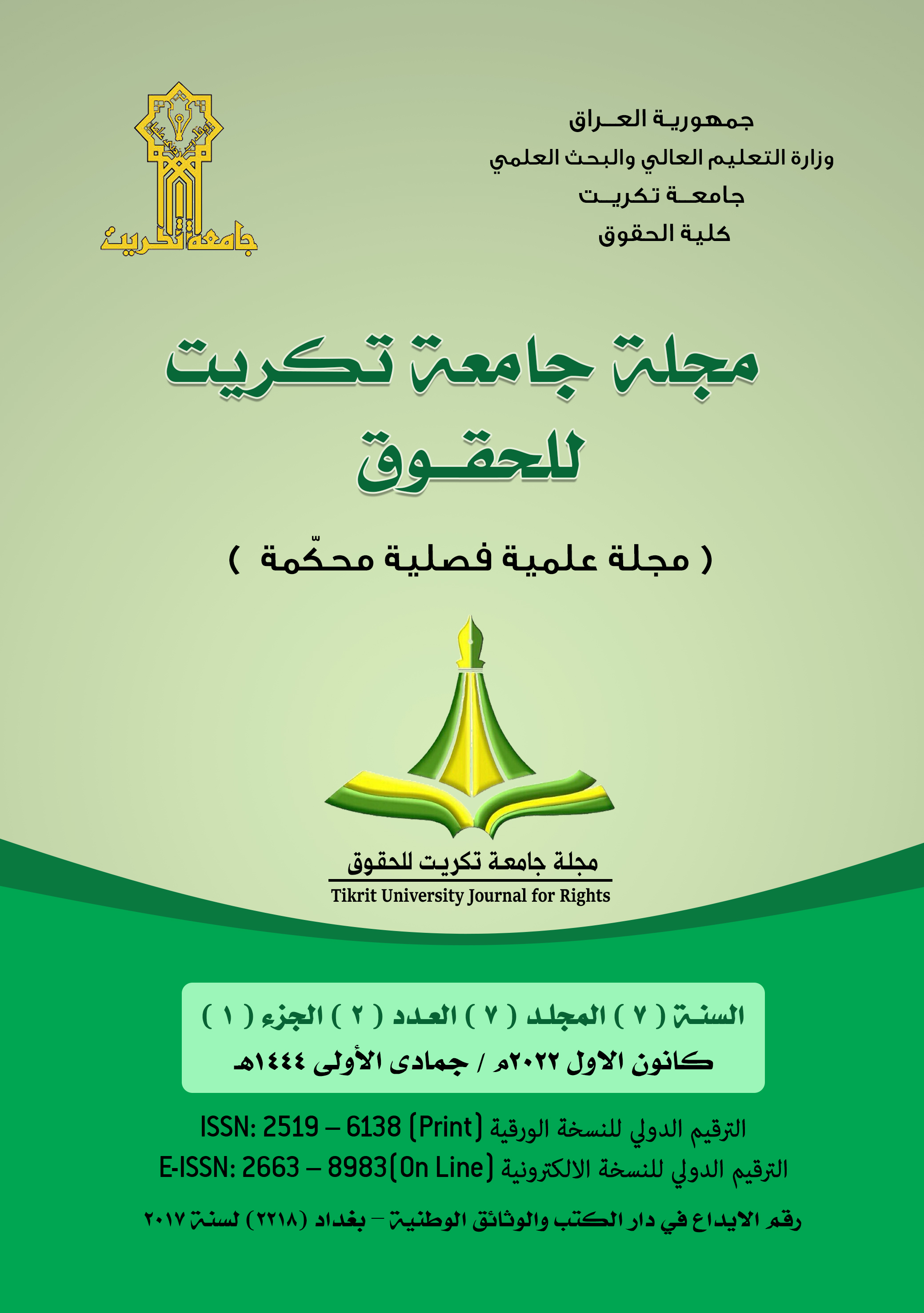Abstract
The testimony is evidence of the evidence referred to by the Iraqi law and is considered a legally accepted means used by the parties to the conflict to convince the judge of the veracity of the facts they claim.
If the testimony alone is sufficient to resolve the dispute, consider the evidence to be complete and resolve the case before the court, but if the testimony is incomplete and unable on its own to resolve the dispute before the judiciary and convince the court of its authority, it is incomplete and the dispute cannot be resolved in this way except by completing its authority by the judiciary by completing this deficiency, which is based on the authority or authority granted to the court to indicate and direct the litigants, which shows the positive role of the civil judiciary and the discretion of the dispute.The judicial function is one of the most important and dangerous jobs because it affects the rights of people and affects in one way or another the organization of various aspects of life, Judicial work must be characterized by careful study in order to achieve the goal of issuing a court ruling for each right holder in accordance with the law . However it is possible that the judge or the court may make mistakes during the hearing of the case and the issuance of the ruling . The impact of these errors on the court ruling varies according to several reasons, as they may be written or mathematical errors or this could be due to a violation of the law, a judge's misunderstanding of the legal text, or an error in implementation. In both cases, whether it is a written or legal error, it is considered an unintended mistake by the judge or the court, and he is not entrusted with any responsibility towards the judge as long as he does not fall within the scope of bad intent .
If the testimony alone is sufficient to resolve the dispute, consider the evidence to be complete and resolve the case before the court, but if the testimony is incomplete and unable on its own to resolve the dispute before the judiciary and convince the court of its authority, it is incomplete and the dispute cannot be resolved in this way except by completing its authority by the judiciary by completing this deficiency, which is based on the authority or authority granted to the court to indicate and direct the litigants, which shows the positive role of the civil judiciary and the discretion of the dispute.The judicial function is one of the most important and dangerous jobs because it affects the rights of people and affects in one way or another the organization of various aspects of life, Judicial work must be characterized by careful study in order to achieve the goal of issuing a court ruling for each right holder in accordance with the law . However it is possible that the judge or the court may make mistakes during the hearing of the case and the issuance of the ruling . The impact of these errors on the court ruling varies according to several reasons, as they may be written or mathematical errors or this could be due to a violation of the law, a judge's misunderstanding of the legal text, or an error in implementation. In both cases, whether it is a written or legal error, it is considered an unintended mistake by the judge or the court, and he is not entrusted with any responsibility towards the judge as long as he does not fall within the scope of bad intent .
Keywords
- Mistake. - Unintentional. - Judgment. - Civil. - Pleading. - Proceeding.
Abstract
تعد وظيفة القضاء من اهم واخطر الوظائف لكونها تمس حقوق الناس وتؤثر بصورة او بأخرى في تنظيم مختلف جوانب الحياة , وبالتالي يجب ان يتصف العمل القضائي بالدقة و الحرص الشديدين ببغية تحقيق الغاية المتوخاة من اصدار الحكم القضائي والمتمثلة بحصول كل صاحب حق على حقه وفقا للقانون , الا انه وعلى الرغم من ذلك فليس من النادر وقوع القاضي او هيئة المحكمة بأخطاء اثناء نظر الدعوى واصدار الحكم , وان تأثير هذه الأخطاء على الحكم القضائي تختلف بأختلاف اسبابها , فقد تكون الاخطاء املائية سواء كانت كتابية ام حسابية , وقد تكون بسبب مخالفة القانون او سوء فهم القاضي للنص القانوني او الخطأ في تطبيقه , وفي كلتا الحالتين المتمثلتين بالخطأ المادي او القانوني فأن الخطأ لا يعدو ان يكون خطأً غير متعمد للقاضي او المحكمة وان ترتبت عليه اثار معينة الا انه لا يرتب اية مسؤولية على القاضي ما دام لم يخرج عن نطاق حسن النية .
Keywords
- الخطأ. - غير العمدي. - القضاء. - المدني. - المرافعة. -الدعوى.
